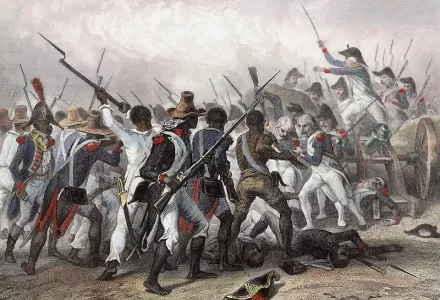From Revolution to Recognition: Assessing the Effect of Proslavery Ideology on British and U.S. Isolation of Haiti, 1804–1862
Speaker: Lindsay Hundley, Research Fellow, International Security Program
This seminar will be online. Please join us remotely via Zoom! Instructions below.
In recent years, the world has increasingly witnessed international conflict along ideological fault lines. Western policymakers warn that authoritarian countries like Russia and China are seeking to exploit divisions within democratic societies to promote autocratic tendencies, while for decades, authoritarian countries have accused the West of doing the same—of manufacturing domestic uprisings as a way to force liberalism upon them. While history is filled with examples of conflicts along these types of ideological lines, there is little consensus among scholars about whether ideology has any effect on relations between states. This presentation will focus in on British and U.S. reactions to the Haitian Revolution to advance scholars' and policymakers' understanding of the relationship between ideology and international conflict.
Please join us via Zoom! Click here to join.



